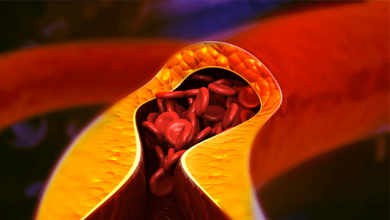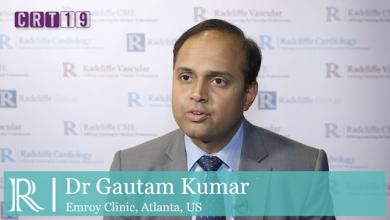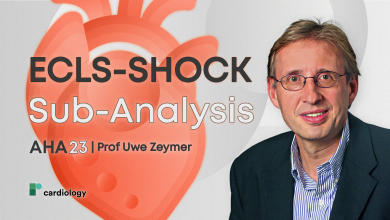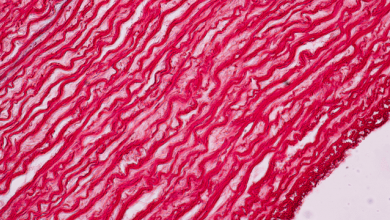Search results
Author(s):
Tomomi Akama
,
Araya Tenghattakorn
,
Motoharu Yamasaki
,
et al
Added:
3 years ago
Topic: Heart Failure (Basic), Molecular Cardiology
Previous studies, including ours, suggest that tumour repressor p53 is activated during somatic cell reprogramming, and efficiency of induced pluripotent stem cell (iPSC) formation is limited through transactivation of p53 target genes leading to apoptosis and cell cycle arrest. Recent studies revealed non-transcriptional effects of p53 on…
View more
Author(s):
Christos-Konstantinos Antoniou
,
Polychronis Dilaveris
,
Panagiota Manolakou
,
et al
Added:
3 years ago
Ventricular repolarization, as opposed to depolarization, is not a triggered phenomenon following an orderly sequence, hence the dissimilarity between their inscribed electrocardiographic waves; rather, ventricular myocytes repolarize at a time and rate determined by their intrinsic electrophysiological properties (relative concentration of ion channel types and isoforms), as well as by the…
View more
Author(s):
Zaki Akhtar
,
Lisa WM Leung
,
Christos Kontogiannis
,
et al
Added:
2 years ago
Author(s):
Natalie Arnold
,
Katharina Lechner
,
Christoph Waldeyer
,
et al
Added:
2 years ago
Author(s):
Gautam Kumar
Added:
5 years ago
Dr Gautam Kumar (Emroy Clinic, Atlana, US) discusses the Real World Validation of the Resting Full-Cycle Ratio (RFR): A Novel Non-Hyperemic Index of Coronary Artery Stenosis Severity.
Filmed on-site at CRT 2019 by Radcliffe Cardiology
Questions:
1. What is RFR and how does it compliment/compare to other physiologic indices?
2. What data are you presenting at CRT 2019?
3. What conclusions can…
View more
Author(s):
Gustav Steinhoff
Added:
3 years ago
Cell therapy for myocardial regeneration is an exciting new field of medical research that has the potential to revolutionise cardiovascular medicine. Despite significant improvements in emergency treatment, myocardial infarction (MI) leads to a net loss of contractile tissue in many patients with coronary artery disease (CAD). Often, this is the beginning of a downward spiral towards congestive…
View more
Author(s):
Gustav Steinhoff
Added:
3 years ago
Cell therapy for myocardial regeneration is an exciting new field of medical research that has the potential to revolutionize cardiovascular medicine. Despite significant improvements in emergency treatment, myocardial infarction leads to a net loss of contractile tissue in many patients with coronary artery disease. Often, this is the beginning of a downward spiral towards congestive heart…
View more
Author(s):
Daniel Alejandro Lerman
,
Nasri Alotti
,
Kiddy Levente Ume
,
et al
Added:
3 years ago
Acute myocardial infarction (AMI) is still a major public health problem worldwide, causing high rates of morbidity and mortality. In the United States, nearly one million patients suffer from AMI each year.1 In the UK, around 80,000 people died from coronary heart disease (CHD) in 2010.2
The current approach to the treatment of myocardial infarction involves early revascularisation with…
View more
Author(s):
Uwe Zeymer
Added:
5 months ago
AHA 23 - We are joined on-site by Prof Uwe Zeymer (Klinikum Ludwigshafen, Ludwigshafen, DE) to discuss the findings from a sub-analysis of the ECLS-SHOCK trial.This sub-analysis investigates the impact of cardiac arrest before randomisation on the efficacy of ECLS in patients with infarct-related cardiogenic shock. Investigators enrolled 420 patients with acute MI and cardiogenic shock across 41…
View more
Author(s):
Astrid Hubert
,
Andreas Seitz
,
Valeria Martínez Pereyra
,
et al
Added:
3 years ago
Coronary artery spasm (CAS) is an established cause for anginal chest pain, the cardinal symptom of myocardial ischaemia, in patients with angiographically unobstructed coronary arteries. Evidence from large clinical studies has revealed that about 50% of patients undergoing diagnostic coronary angiography for suspected coronary artery disease (CAD) had either normal or near normal coronary…
View more














